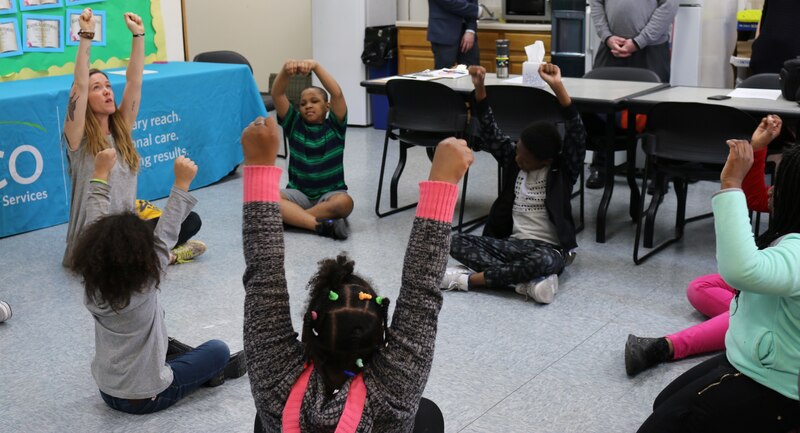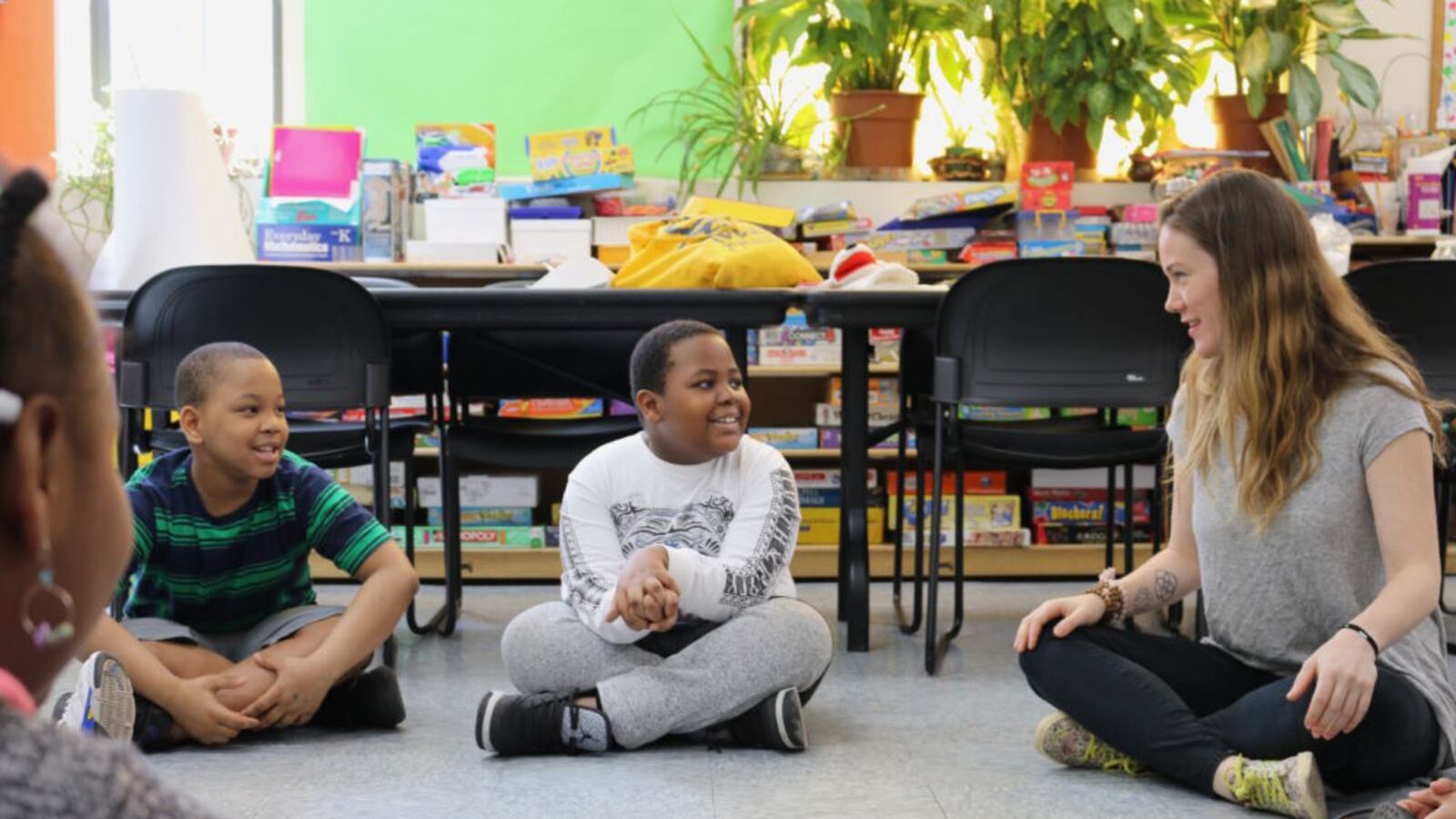“How many of you have ever been worried about making a mistake?” the teacher asked, glancing around the circle as hands shot up.
One boy remembered accidentally hitting his mother with a ball. Another shared his fear of riding a two-wheeler without training wheels for the first time.
The drama teacher, who had long, wavy hair and tattooed arms, listened closely to each child. When the group’s focus drifted, she gently pulled it back with a series of deep breaths or a quick game of Simon Says.
The conversation was part of a spring break arts camp at the Flushing Family Residence in Bushwick, a shelter for homeless families. Visiting artists are spending two hours each day this week helping the children transform a book into a mini-musical they perform on Friday. In this case, the book was “The Girl Who Never Made Mistakes,” hence the teacher’s questions.
The camp plays two roles: Getting the students excited about reading while offering the daily dose of structure and support that school normally provides.
“The majority of the time, students really want to be at school because it’s a very safe place for them to be,” said Jackie Wolff, the teacher. “Spring break can be really a scary time for kids.”
The arts camp is part of the city’s Afterschool Reading Club, a $1.4 million pilot project launched last October to help boost literacy among 1,400 children living in 18 shelters across New York City. It’s one in a raft of new programs the Department of Education hopes will help serve the city’s exploding population of homeless students. Nearly one in 10 students lived in a shelter or in temporary housing during the 2015-16 school year, a recent report found.
Three days each week when school is in session, the Reading Club brings teachers into shelters after school to help with reading in particular, but also to offer subjects like art, design and architecture. Over spring break, the city decided to do something different, teaming up with New York City Children’s Theater — one of the program’s regular collaborators — to help students create their own performances at six of the sites.
“We’re very grateful,” said shelter director Nancy Vasquez. “Anything to engage these kids to feel different from everything else that’s going on around them at this particular time in their lives.”
The shelter is a hulking beige building run by SCO Family of Services, a local nonprofit. Ninety-nine families live there, in small studio apartments with kitchenettes. The average shelter stay for a family with children is just over a year, according to the Department of Homeless Services, though some families stay much longer.
On a rainy day, the brightly painted room that houses the Reading Club has no problem attracting visitors. It’s filled with games, books and art supplies. But Tuesday was a gorgeous spring day, one of the first of the year, so the group was smaller — just nine children, all in elementary school.

They took turns sharing things they were proud of — like being a good friend or brave on a skateboard. To show agreement with a speaker, they sent “brain waves” by shaking a hang-loose sign near their heads. Getting down to business, Wolff plotted the book’s arc on a giant notepad, and the children partnered up to act out different scenes.
“A lot of times, the kids in these workshops who really thrive and do well are the kids who have a really hard time in class because that sitting still is very hard for them,” Wolff said. “If they get an opportunity to act like a character or express themselves in a different way with their body or their voice, they can have a place to shine.”
Wolff and her colleagues are specially trained to be sensitive to trauma. When one exercise called for tapping the students on the shoulder, for instance, she asked each for permission first.
During a quick lunch break, the students gave the camp a hearty endorsement. “I like the story because it has conflict,” explained Javan, 9, as he pulled apart his turkey sandwich. He rattled off other stories with conflict: “Spider-Man,” “Charlie and the Chocolate Factory.” He liked those, too.
And that’s the point of the program, says Rebekah Nelson, a citywide literacy coach with the Department of Education. “There’s a huge deficit in proficiency levels [among] students who live in temporary housing,” she said, a point backed up by a 2016 report. “We want to foster this love of reading, this culture that reading is cool and reading is fun.” As part of the push, children take books home every week to keep and share with their siblings.
The students spent part of Tuesday morning making invitations for their show on Friday, where their parents can come see them perform. Vasquez, the shelter director, said she was eager to attend. “We have the day off, but I’m going to be here,” she said. “I want to see it.”
Summer, age 10, said working on the musical was her favorite part of spring break. “This actually gave me the funnest thing ever,” she said. “To just come here and act.”

